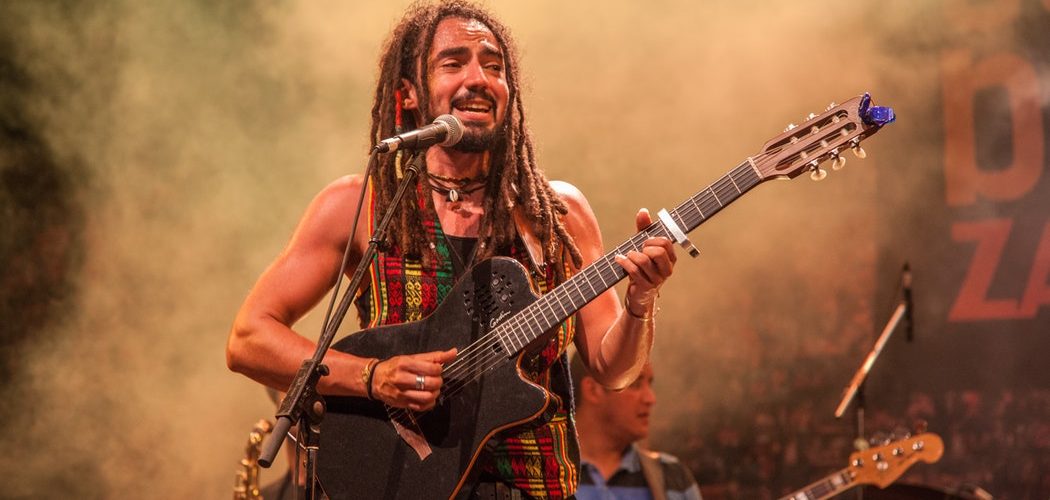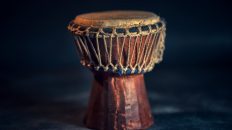Caribbean music originates from the history of the Caribbean itself. That history is one of the native land invaded by outsiders; violence, slavery, and even genocide. It’s surprising that the music itself is so gentle, with this type of formative background. The Caribbean was colonised by various European empires. The native culture was further eroded when the Europeans imported African slaves to work the sugar and coffee plantations on their island colonies. In many cases, the native cultures and the native music were replaced with those brought over from Africa.
At this point, whatever common Caribbean culture existed was splintered. Each of the European powers carved out their on culture on their respective islands. Even with the ending of the colonial period, this is the Caribbean we have today – a series of subtly different cultures from island to island. This island-specific culture also informs the music of the Caribbean. Every island has its distinct musical styles, all inspired, to one degree or another, by the music brought over from the African slaves. As such, most Caribbean music, however unique to its own island culture, includes elements of African music – heavy use of percussion instruments, complex rhythmic patterns, and call-and-response vocals. That said, it’s Important to recognise the musical styles unique to each island. In many cases, the difference between one style and another comes down to the rhythms utilised in each music; there is almost a different rhythm for every island.
The complex deep origins of Caribbean music are understood with a knowledge of Western Hemisphere colonial immigration patterns, human trafficking patterns, the resulting melting pot of people each of its nations and territories, and thus resulting influx of original musical influences. Colonial Caribbean ancestors were predominantly from West Africa, West Europe and India. In addition, neighbouring Latin American and North American (particularly hip hop and pop music) countries have naturally influenced Caribbean culture and vice versa. One must understand these influences to have a deep understanding of the resulting Caribbean music that reflects the culture of the people. Although there are musical commonalities among Caribbean nations and territories, the variation in immigration patterns and colonial hegemony tend to parallel the variations in musical influence.
Of all the different Caribbean sounds, one genre stands above all of them – Reggae. Reggae is a music genre that originated in Jamaica in the late 1960s. The term also denotes the modern popular music of Jamaica and its diaspora. A 1968 single by Toots and the Maytals, “Do the Reggay” was the first popular song to use the word “reggae,” effectively naming the genre and introducing it to a global audience. While sometimes used in a broad sense to refer to most types of popular Jamaican dance music, the term reggae more properly denotes a particular music style that was strongly influenced by traditional mento as well as American jazz and rhythm and blues, especially the New Orleans R&B practiced by Fats Domino and Allen Toussaint, and evolved out of the earlier genres ska and rocksteady. Reggae usually relates news, social gossip, and political comment. Reggae spread into a commercialised jazz field, being known first as ‘Rudie Blues’, then ‘Ska’, later ‘Blue Beat’, and ‘Rock Steady’. It is instantly recognisable from the counterpoint between the bass and drum downbeat, and the offbeat rhythm section. The immediate origins of reggae were in ska and rocksteady; from the latter, reggae took over the use of the bass as a percussion instrument.
The genre of reggae music is led by the drum and bass. Some key players in this sound are Bunny Wailer, Peter Tosh, Jackie Jackson from Toots and the Maytals, Carlton Barrett from Bob Marley and the Wailers, Lloyd Brevett from The Skatalites, Paul Douglas from Toots and the Maytals, Lloyd Knibb from The Skatalites, Winston Grennan, Sly Dunbar, and Anthony “Benbow” Creary from The Upsetters. The bass guitar often plays the dominant role in reggae. The bass sound in reggae is thick and heavy, and equalised so the upper frequencies are removed and the lower frequencies emphasised. The guitar in reggae usually plays on the off beat of the rhythm. It is common for reggae to be sung in Jamaican Patois, Jamaican English, and Iyaric dialects. Reggae is noted for its tradition of social criticism and religion in its lyrics, although many reggae songs discuss lighter, more personal subjects, such as love and socialising.







